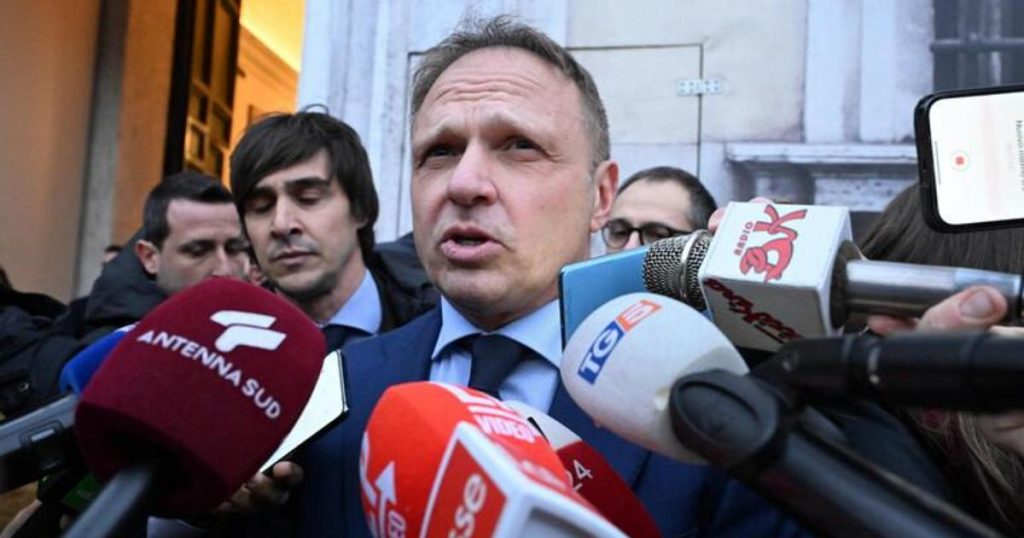Minister of Agriculture Francesco Lollobrigida addressed the ongoing controversy surrounding the alleged disagreements between himself and Minister of the Environment Pichetto, asserting that they are not only colleagues but also friends who constantly keep in touch. Lollobrigida emphasized that there is no basis for the supposed divergences between them. He highlighted Pichetto’s background as a farmer and his understanding of the importance of environmental protection, noting that their ministry does not prohibit solar energy production. In fact, the ministry has funded 13,500 companies this year and plans to support 26,000 in order to install solar panels on structures such as stable and industrial roofs, avoiding any ground-level installations that could disrupt agricultural activities.
The discussion about a possible conflict between Lollobrigida and Pichetto arose in relation to a draft decree from the Ministry of Agriculture that will be presented to the Council of Ministers on May 6th. This draft reportedly includes restrictions on the installation of photovoltaic panels, raising concerns among environmental advocates. Coldiretti, an organization closely aligned with Lollobrigida and historically opposed to solar panels, supported the measure. Lollobrigida clarified that the agreement reached involves a compromise where solar installations will not be permitted on agricultural land, but only on pre-existing structures. This compromise aims to balance the need for renewable energy with the protection of farmland.
The controversy between Lollobrigida and Pichetto reflects a broader debate within the Italian government regarding environmental policies and the promotion of renewable energy sources. While Lollobrigida stressed the importance of supporting solar energy production and highlighted the ministry’s efforts to fund thousands of companies for solar panel installations, concerns remain about the potential impact of these initiatives on agricultural land. The compromise reached between the two ministers suggests a nuanced approach that seeks to encourage renewable energy development while safeguarding agricultural areas from potential disruptions caused by ground-level solar installations.
The discussion surrounding the draft decree underscores the complex challenges faced by policymakers in balancing competing interests in environmental and agricultural sectors. Lollobrigida’s assertion that there are no fundamental disagreements between himself and Pichetto, despite differing perspectives on solar panel installations, highlights the need for dialogue and cooperation within the government. By emphasizing the importance of protecting the environment while also supporting renewable energy projects, Lollobrigida aims to find a middle ground that addresses both concerns raised by environmental advocates and agricultural stakeholders.
As the Giro E-24 event in Turin brought attention to the ongoing debates within the Italian government, Lollobrigida’s comments shed light on the efforts to reconcile divergent views on environmental and agricultural policies. The proposed compromise to limit ground-level solar installations in favor of rooftop structures reflects a pragmatic approach to balancing the need for clean energy with the preservation of agricultural land. The collaborative relationship between Lollobrigida and Pichetto, characterized by friendship and constant communication, serves as a model for constructive engagement on complex issues at the intersection of agriculture and environment. While challenges persist, the commitment to finding common ground and supporting sustainable practices remains a central priority for both ministers as they navigate the evolving landscape of environmental policy in Italy.


